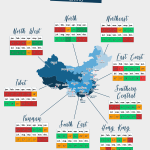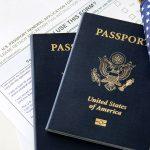10 Easy Steps to Plan Your China Travel
Planning a trip to China may initially seem overwhelming, especially considering the distance from your country and the vast differences in society and culture. However, there is no need to stress. Traveling to China can be a rewarding and enjoyable experience.
China is a majestic country, rich in culture, history, and natural wonders. It offers a unique opportunity for a once-in-a-lifetime adventure. Rest assured, you will not be alone in China. We will take care of everything from airport pickup to accommodations, food, and tour guides.
Before your trip, there are some steps you can take to ensure a smooth and memorable experience. By following these 10 simple tips, you can organize a well-planned trip to China that meets your expectations.
1. Decide Where to Go in China
China is a vast and diverse country offering a wide range of travel options. From classic cultural tours to adventurous expeditions, breathtaking landscapes, and culinary experiences, there is something for every type of traveler. You can explore iconic destinations like Beijing, Xian, and Shanghai in a delightful manner, or venture further to the western regions of China to immerse yourself in exotic cultures and stunning natural beauty in places like Tibet, Sichuan, Yunnan, and Guizhou. Alternatively, you can spend leisurely days exploring the romantic southern destinations of Guilin and Hangzhou.
There are certain must-see attractions that should be included in your itinerary, such as the Great Wall, Forbidden City, Terracotta Warriors, Giant Panda sanctuaries, and the picturesque Li River. For more ideas on what to do in China, you can check out the Top 15 Things to do in China or explore the Top 10 Most Popular Destinations in China for inspiration. If you have a keen interest in Chinese history and culture, you can also discover more UNESCO World Heritage Sites in China.
2. Traveling Independently or with a Tour Package
Traveling independently in well-established tourist destinations like Beijing, Xian, Shanghai, Guangzhou, and Chengdu is relatively easy. However, it is not recommended if you are looking to explore more remote areas in southwestern, southern, and northeastern China. Visiting China on your own can be time-consuming as you will need to spend a lot of time planning, finding accommodations, and navigating your way around. In some cases, it may even end up being more expensive than opting for a tour package.
For those looking to truly experience the heart of China in a comfortable and stress-free manner, traveling with a reputable travel agency is highly recommended. A reliable local tour operator, such as China Discovery, offers both group tours and customized packages that cater to your specific needs. This way, you can avoid the hassle of researching hotels, destinations, and dining options online.
3. Decide When to Go
China’s vast territory offers a diverse range of destinations to explore throughout the year, thanks to its four distinct seasons. From the bustling metropolises of Beijing, Xian, Shanghai, Hong Kong, and Chengdu to the natural wonders scattered across the country, there is always something new to discover.
While cities like Beijing, Xian, Shanghai, Hong Kong, and Chengdu offer attractions that can be enjoyed year-round, some destinations are best visited during specific seasons. For those looking to avoid crowds, it’s advisable to steer clear of peak tourism seasons, such as National Holiday and the Middle Autumn Festival.
Autumn is widely regarded as the best time to visit China, with pleasant weather and stunning scenery on offer. However, to make the most of your trip, it’s essential to plan your visit according to the season. Whether you’re looking to explore the cherry blossoms in spring, soak up the sun in summer, marvel at the fall foliage in autumn, or experience a winter wonderland, China has something for everyone.
To help you plan your trip, check out our recommended destinations to visit in each season. With so much to see and do, China truly is a year-round destination waiting to be explored.
4. Get Your Travel Documents Ready
Before traveling to China, it is essential to ensure that your passport and Chinese visa are prepared well in advance. While some cities in China, such as Beijing, Shanghai, Chengdu, and Xian, have implemented visa-free policies, these typically only allow for a stay of less than 72 hours and involve complex procedures.
To avoid any last-minute issues, it is advisable to apply for a Chinese visa at least six months before your planned trip. Opting for a multiple entry visa is recommended as it permits multiple entries into China, making it convenient for visits to Hong Kong or Macau with returns to China. Additionally, ensure that your passport is valid and will not expire during your time in China. If you do not have a passport, be aware that it can take four to six weeks from the time of application to receive one.
For those interested in visiting Tibet, obtaining a Tibet Entry Permit is necessary. By taking these necessary steps and planning ahead, you can ensure a smooth and hassle-free travel experience to China.
5. Decide Your Trip Length and Create a Rough Itinerary
A trip to China can be as short as a day tour or as long as a months-long panoramic adventure. The length of your trip is up to you, but the destinations you choose will determine how many days you’ll need. A classic China tour, which includes stops in Beijing, Xian, Chengdu, Guilin, and Shanghai, typically lasts about 15 to 16 days and is popular among first-time visitors. If you have more time to spare, you can also consider adding a Yangtze River Cruise (4 to 5 days), Tibet (4 to 8 days), Zhangjiajie (3 to 4 days), or Yellow Mountain (3 to 4 days) to your itinerary.
To make the most of your trip, it’s recommended that you plan your itinerary at a leisurely pace so you can fully experience all the highlights without feeling rushed or exhausted. If you’ve already done some research, you can create a rough itinerary on your own and then send it to your travel agency to check availability. If you’re unsure how to organize your destinations into an itinerary, don’t hesitate to ask your travel consultant for a recommended itinerary.
6. Book Your Flights and Hotels
Once you have finalized your ideal itinerary and received confirmation from your travel agency, it is time to begin booking your flights and accommodations. It is highly recommended to book early as prices for flights and hotels are subject to change. By booking in advance, you can take advantage of lower prices.
In popular destinations like Huangshan and Lhasa, hotels tend to fill up quickly during peak seasons. If you are open to flexibility, you may choose to arrange your flights and accommodations independently. However, we advise allowing your travel agency to handle these bookings for you. Travel agencies have the expertise to match your flights with your itinerary and select hotels that offer exceptional service and amenities. Additionally, they often have access to discounted rates for flights and accommodations.
7. Traveling with Children
Traveling in China with your children can be a fun, entertaining, and educational experience. The country’s rich culture, fascinating history, breathtaking natural landscapes, unique cuisine, and affordable shopping opportunities make it an ideal destination for family vacations. Additionally, China is a safe and convenient place to travel with kids, as most destinations are easily accessible by fast flights, trains, or buses.
There are countless activities to enjoy during your family trip to China. From visiting adorable Giant Pandas to volunteering opportunities, leisurely hikes along the Great Wall, making new friends in local parks, exploring amusement parks, taking Kungfu classes, and watching acrobatic shows, the possibilities are endless. Rest assured that accommodation, dining, and transportation in China are all easily accessible and cater to families.
To ensure a smooth and enjoyable trip, plan ahead and pack only the essentials for your children. Many necessary items for kids and infants can be found in China, so there’s no need to overpack. Embrace the comfort, fun, and unforgettable experiences that await you and your family in the Middle Kingdom.
8. Money and Currency in China
The Renminbi (人民币) or RMB is the official currency of China. In China, the yuan is often referred to as “kuai”. Both terms are commonly used interchangeably. For example, 1 yuan is equivalent to 1 kuai. Notes are available in denominations of 1RMB, 10RMB, 20RMB, 50RMB, and 100RMB.
While most businesses in China only accept Chinese currency, your travel agency typically accepts USD, EURO, GBP, and AUD. You can exchange foreign currency for Chinese RMB at airports, banks, ATMs, hotels, and currency exchange offices. It is recommended to carry some cash for daily expenses such as food, transportation, and shopping during your travels in China. Most ATMs in major cities like Beijing, Xian, Chengdu, and Shanghai allow you to withdraw Chinese currency.
9. Start Packing and Review Your Medical Checklist
When preparing for your trip to China, it is important to pack light and only bring necessary items. Many things you may want to purchase can easily be found in China, so there is no need to overpack. Keep in mind that your luggage will likely become fuller and heavier as you discover all the interesting items available for purchase.
Make sure to keep your passport and Chinese visa safe and secure, as replacing them in China can be a serious issue. It is a good idea to make copies of these documents and store them separately from the originals. Additionally, remember to bring your bank card, credit card, and any confirmations for flights, hotels, and trains.
When it comes to clothing, pack according to the season and your destination. Check the weather in China or consult with your travel advisor for recommendations. Consider using different sizes of bags for organized packing: larger bags for clothing and less frequently used items, and a smaller bag for essentials that you will carry with you.
Before you start packing, be aware of luggage restrictions for air travel to China. These restrictions can vary between airlines and it is important to understand them before you arrive at the airport.
10. Learn More about China
China is a unique country that stands apart from America, Australia, and Europe. There are countless fascinating aspects of Chinese culture to explore, including festivals, cuisine, history, and various facts. Acquiring knowledge about Chinese traditions and customs will greatly enhance your understanding of the information provided by tour guides during your trip.




















